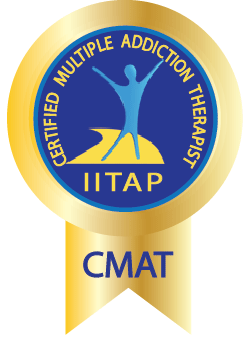Middle Tennessee’s Premier Counseling and Coaching Center for Children, Adults, Couples, and Families!
Middle Tennessee’s Premier Counseling and Coaching Center for
Children, Adults, Couples, and Families!
Middle Tennessee’s Premier Counseling and Coaching Center for
Children, Adults, Couples, and Families!
When you’ve experienced trauma, life can feel like it’s divided into “before” and “after.” You may want to move forward, but your body and mind keep pulling you back to the pain. Trauma changes the way the brain and nervous system function, leaving you stuck in survival mode and feeling hypervigilant, anxious, disconnected, or numb.
Trauma is less about the actual even and more about our experience of that event. Which is why it is important to understand how an individual has been shaped and impacted by their trauma. Trauma lives in the body and shapes how you experience the present. Our goal is to help you feel safe again, reclaim your voice, and restore balance in your life.
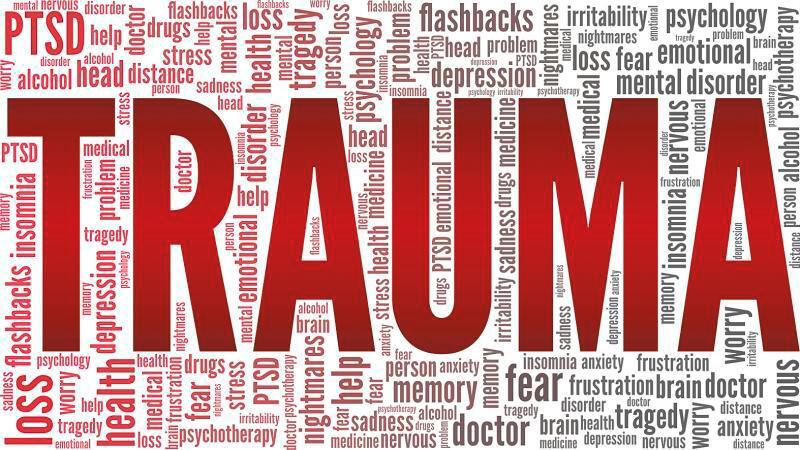
Shock trauma refers to a single overwhelming event (or a series of related events over a short period) that floods the nervous system and overwhelms your ability to cope.
Examples of shock trauma include:
Key characteristics of shock trauma:
Developmental trauma is chronic, ongoing relational trauma that occurs during childhood, often in the context of caregivers or environments that were not attuned, unsafe, or emotionally unavailable.
Examples include:
Key characteristics of developmental trauma:
Developmental Trauma is a term used in the literature to describe childhood trauma such as chronic abuse, neglect or other harsh adversity in their own homes. When a child is exposed to overwhelming stress and their caregiver does not help reduce this stress, or is the cause of the stress, the child experiences developmental trauma. The vast majority of children with developmental trauma will not develop PTSD. Instead, they are at risk for a host of complex emotional, cognitive and physical illnesses that last throughout their lives.
You are not “broken.” These are normal responses to an overwhelming experience. And with the right support, you can heal.
You can’t heal wounds with logic. While logic and understanding are critically important that will only take you so far in your healing. Since trauma is an experience, deeper healing comes through corrective emotional experiences. Healing from trauma takes more than talking about the past, it requires a safe space, effective tools, and a body-based approach.
If any of these sounds familiar, you are not alone, and help is available. You are not defined by what has happened to you and your trauma is not your identity. With the right support, you can feel safe, reclaim your sense of self, and build a future grounded in hope and strength.
Through evidence-based, trauma-informed care, we help you process painful experiences, reduce triggers, and reclaim your sense of stability and peace.
For a faster response please text or email us.
4048 Luke Ct., Suite C
Murfreesboro, TN 37128

Lori is a masters level graduate intern working toward her Master’s Degree in Marriage and Family Counseling at Trevecca Nazarene University. She holds a bachelor’s degree in Integrated Studies from Middle Tennessee State University with minors in Sociology and Psychology, giving her a strong foundation in understanding people within the context of their relationships, environments, and broader systems.
With a genuine passion for helping others make sense of their experiences, Lori approaches therapy with curiosity, compassion, and a holistic lens. She is committed to supporting individuals, couples, and families as they navigate life’s transitions, challenges, and moments of growth. Her presence is grounding, empathetic, and steady while creating a therapeutic space where clients feel seen, understood, and safe to explore their inner world.
In her work, Lori takes a person-centered and direct approach, gently helping clients notice unhelpful patterns, deepen self-awareness, and build healthier, more meaningful narratives. She believes therapy is a collaborative process that invites reflection, connection, and transformation. Lori is passionate about helping each person tap into their innate capacity for healing, resilience, and authentic change.
As an intern at Anchored in Healing, Lori works under the supervision of Allison Hunnicutt, LMFT, and brings warmth, insight, and wholehearted dedication to the clients she serves.
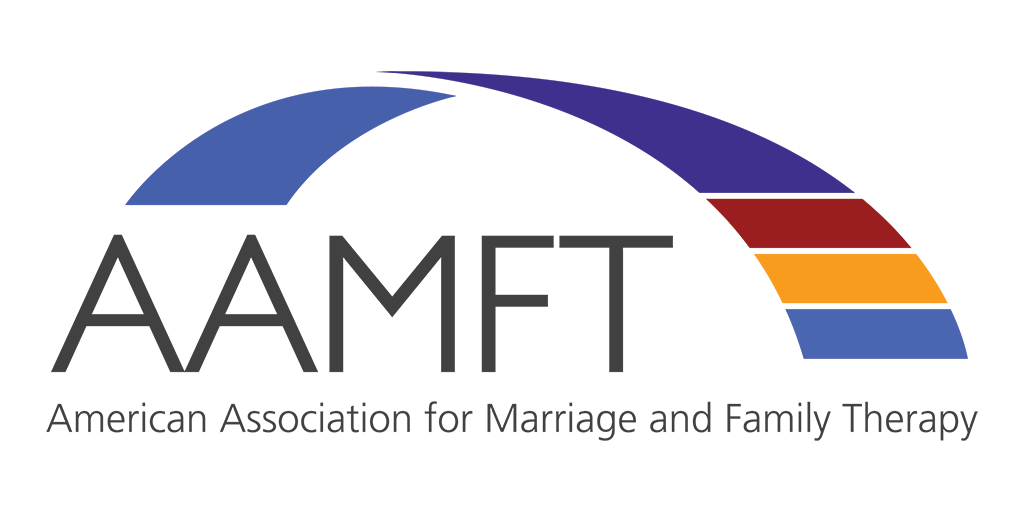
Scott Phillips is a master’s level Marriage and Family Therapy intern at Anchored in Healing. He is currently pursuing his master’s degree in Marriage and Family Therapy at Trevecca Nazarene University.
Scott is passionate about his work with individuals, couples and families. He has a calming presence and treats clients with respect, empathy, patience, and encouragement. He is passionate about guiding clients through the therapeutic process to meet their goals. He embraces diversity and inclusion and has experience working with people from various cultures and backgrounds.
Scott is a active member of the American Counseling Association and the American Association for Marriage and Family Therapists. He is certified in Prepare/Enrich Counseling for couples who wish to strengthen their connection. He has 8 years of experience counseling individuals through a volunteer organization. Scott’s professional work over the last 20 years included helping employees achieve their career goals, and coaching managers in leading teams. His counseling goals include specializing in men’s mental health, ADHD, spiritual/religious abuse, career counseling, anxiety disorders, and working with couples.
Scott enjoys spending time with his wife, son, and a Staffy dog named Rosie. His hobbies include woodworking, DIY & art projects, reading, cooking, travelling and watching movies/TV.
Julianne Albright is a master’s level Social Work Therapy Intern at Anchored in Healing. She earned her undergraduate degree in Social Work from the University of Tennessee at Chattanooga and is currently pursuing her master’s degree in social work at Middle Tennessee State University.
With several years of experience in child welfare through her work with the Tennessee Department of Children’s Services, Julianne has supported children and families through some of life’s most challenging moments. This experience has deepened her belief that every person is shaped by their unique journey and that every experience holds an opportunity for growth and healing.
Julianne is passionate about helping individuals overcome trauma and build resilience. She enjoys working with children, adolescents, and adults, creating a safe and supportive environment where clients can find hope, healing, and connection.
Julianne has specialized training in working with individuals with Autism and ADHD, Trauma-Focused Cognitive Behavioral Therapy (TF-CBT), Dialectical Behavioral Therapy (DBT), which allows her to provide evidence-based care for clients navigating trauma, emotional regulation, and behavioral challenges. She is also a proud member of the National Association of Social Workers (NASW), reflecting her commitment to professional ethics and continued learning.
Outside of her work and studies, Julianne loves spending time with her husband, their four children, and two dogs. She enjoys reading, baking, and staying busy cheering her kids on in band, sports, and other activities.


Cortney Bartemus is a master’s level Marriage and Family Therapy intern at Anchored in Healing. She is currently pursuing her master’s degree in Marriage and Family Therapy at Trevecca Nazarene University.
Cortney works from an attachment perspective. She works with children, adolescents, and adults, and makes it a priority to help all clients feel safe, seen, heard, and secure. She believes each individual is unique and has something beautiful to offer the world.
Cortney is dedicated to outside training, certified in PREPARE ENRICH Premarital Counseling, and has attended the EFT Externship. Cortney continues to grow and develop both personally and professionally. She always seeks to learn and grow and hopes to inspire her clients to do the same! She works with individuals, couples, and families.
Cortney enjoys hiking and seeing waterfalls with her husband and kids in her spare time.
Carissa earned her bachelor’s degree from The University of Tennessee, Knoxville and earned her master’s degree in Marriage and Family Therapy from Alliant International University. Carissa is currently pursuing her doctorate in clinical psychology with a marriage and family therapy focus at Alliant International University. While working in community mental health in El Cajon, CA with children, adolescents, teens, and families, Carissa pursued further certifications in Child and Adolescent Needs and Strengths (CANS) assessment, Trauma Focused Cognitive Behavioral Therapy for children (TF-CBT), Parent-Child Interaction Therapy (PCIT), and Emotionally Focused Therapy Training. Carissa is also an active member of the Association for Play Therapy and loves to explore the child’s mind through play and experience.
After living in several parts of the USA, the UK, and Switzerland, Carissa is thrilled to be back home in Middle Tennessee. Through exploring the world, she realized the importance of seeing each person as unique and honoring the different life experiences and perspectives each client brings to the therapy space. Carissa has also been teaching fitness classes for the past 15 years and believes in a holistic approach to health with an emphasis on emotional regulation through mind and body awareness. In her spare time,
Carissa enjoys spending time with her family, four Italian Greyhounds, and getting outside as much as possible.


Maddie is a TN Licensed Master of Social Work and received her masters in social work from Middle Tennessee State University. She is an active professional member of the National Association of Social Workers as well as the Association for Play Therapy.
Maddie has a deep passion for working with children, adolescents, and young adults. Maddie has received extensive training in working with kids with various forms of presenting issues and trauma. Maddie is also trained in Eye Movement Desensitization and Reprocessing (EMDR) levels 1 and 2. She utilizes various forms of therapy to help clients learn to better cope with mental, emotional, social, and/or behavioral struggles, and guide them towards health. She aims to help clients become emotionally resilient to the ongoing challenges that life continues to present! She empowers clients to use their voice, challenge negative core beliefs, and celebrate their gifts and talents no matter how old they are. Common areas of practice for her are adoption, divorce care, ADHD, trauma healing, sexual and other forms of abuse, emotional regulation, self esteem struggles, anxiety, and more.
With younger clients Maddie works from a behavioral aspect through play therapy. Play allows children to symbolically create play scenarios that resemble their own emotional experiences and provide an opportunity for the therapist and/or parent to provide validation and reparative experiences. The work she does with her clients is a reflection of her credentials, values, and experience. Maddie’s schedule is flexible and she offers evening and weekend openings to accommodations sessions with children outside of school hours.
Maddie appreciates quality time with her family, traveling the world, and trying new foods. She also enjoys spending time with her fiancé and cat, Nugget.


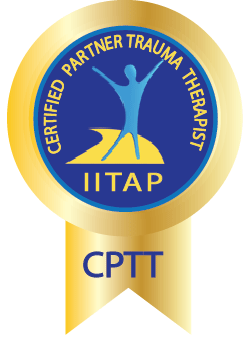
Kristen is a TN Licensed Master of Social Work and currently holds a masters degree in Public Administration as well as Social Work. She began her career in child protective services at the Tennessee Department of Children’s Services, working with children and families. Kristen’s life experience has taught her that life is full of contradictory emotions. She is driven by the desire to help others recognize the opportunities for growth, change, and healing that life presents to each of us. Kristen appreciates each person’s individuality and is genuinely interested in people’s individual stories. Kristen enjoys working with teenagers, adults, and couples. Kristen has completed specialized training as an Certified Partner Trauma Therapist (CPTT) and has extensive experience working with betrayed partners of infidelity. She is also trained in Eye Movement Desensitization and Reprocessing (EMDR) Levels 1 and 2, as well as, Level 1 Internal Family Systems (IFS).
Kristen cherishes her time with her husband and two sons. Her interests include reading, laughing, exploring people’s enneagram numbers, listening to crime podcasts, and watching way too much Netflix.

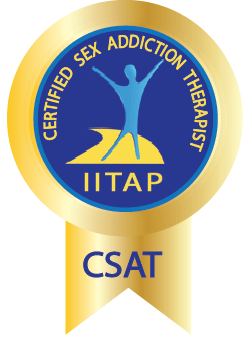
Jennifer Pascual is a Licensed Masters of Social Work who received a Masters Degree from Middle Tennessee State University. Jen joined Anchored in Healing with 20 years of experience with the Tennessee Department of Children’s Services, where she held various positions in child protective services, foster care, training, and leadership. She has extensive training, knowledge, and experience working with children, adults, and families healing from trauma, abuse, and addiction. In addition, Jen has completed training in Prepare and Enrich therapy for couples, Trauma-focused Cognitive Behavioral Therapy, Emotionally Focused Therapy [EFT] for couples, EMDR, Play Therapy, and has completed all training as a Certified Sex Addiction Therapist working with individuals and couples healing from problematic sexual behaviors.
Jen is genuinely interested in hearing, believing, and understanding her client’s experience. Her friendly personality and personable communication style allow her to connect easily with people. She enjoys working with couples and helping them gain new perspectives. Jen has a practical approach to behavior change and is committed to helping her clients reach their goals for healthy minds and spirits. She teaches tools to reframe negative thoughts and mindfulness techniques to help improve emotional regulation.
Jen is a genuine people person who never meets a stranger. She is a fantastic hostess, chef, and party planner. Jen’s life is bursting with people she loves, and she stays busy having fun with her husband, two teenagers, two dogs, a large extended family, and way too many friends to count. She also enjoys traveling, volunteering in her faith community, and reading.


Misty Taylor is a Speech-Language Pathologist and Certified Life Coach who is passionate about helping individuals unlock their fullest potential both in communication and in life. With a warm and encouraging style, she empowers clients to find their voice, build confidence, and create meaningful change in their personal and professional lives.
As a CCC-SLP, Misty has extensive experience addressing speech, language, and cognitive-communication needs for clients across the lifespan. She supports individuals in areas such as articulation, expressive and receptive language, social communication, voice, and fluency. Drawing from her background in leadership and her certification as a life coach, Misty blends evidence-based therapy with practical coaching strategies to help clients overcome challenges, set clear goals, and stay motivated on their growth journey.
Misty earned her Bachelor’s and mMaster’s degree in communication, Sciences and Disorders from Western Illinois University, and Life Coaching Certification through the International Associate of Coaching (IAC). Through her extensive experience in various settings, Misty has developed a deep understanding of what it takes to build supportive, client-focused systems of care. Today, she brings that same commitment to excellence into every client session, ensuring a compassionate and results-driven experience.
Specialties & Focus Areas
When she’s not working with clients, Misty enjoys gardening, working out, organizing, reading, and playing with her dogs. She believes that every person has a unique voice and story worth sharing, and she’s dedicated to helping her clients express both with confidence and authenticity.
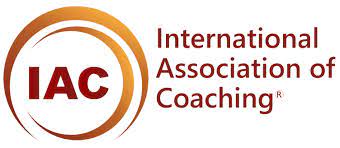
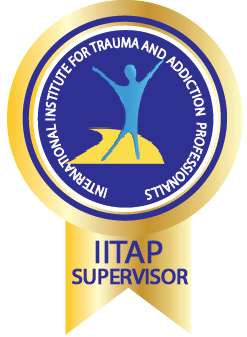
Allison is a Licensed Marriage and Family Therapist who earned her Master’s Degree in Marriage and Family Therapy from Trevecca Nazarene University. She believes that all behavior makes sense in the context of someone’s story. She greatly empowers individuals and couples to heal from trauma, learn from setbacks, and create the life they have longed for. Allison works from an strong attachment perspective believing that when we can be more securely attached to ourselves and others, we encompass the skills needed to weather any storm that comes in our life.
In addition to her Master’s Degree and educational training, Allison has received extensive training in the areas of Trauma, Addiction, Intimacy Disorders, Eating Disorders, Financial/Work Disorders, and ADHD. In addition to her training as a therapist Allison is also a Certified Life Coach and helps people capitalize on their own strengths and talents to create the future they want.
Allison is a Certified Sex Addiction Therapist [and CSAT supervisor], Certified Multiple Addiction Therapist, Certified Clinical Trauma Professional, and Certified ADHD Service Provider. She is trained in EMDR levels 1 and 2, EFT therapy for couples, Gottman Couples therapy, Dialectical Behavioral Therapy (DBT), Acceptance and Commitment Therapy, Play Therapy, and Prepare and Enrich therapy for couples. She is 1 of only 7 CSAT supervisors in the state of Tennessee. Allison is also an AAMFT approved supervisor for marriage and family therapists who are in the licensure process. Allison is an active professional member of the American Association for Marriage and Family Therapists, American Psychological Association, and The Association for Play Therapy.
Through her education, life experience, and her extensive training, Allison has been able to help thousands of clients work through the road blocks of their life and achieve a level of freedom and satisfaction they didn’t know existed.


